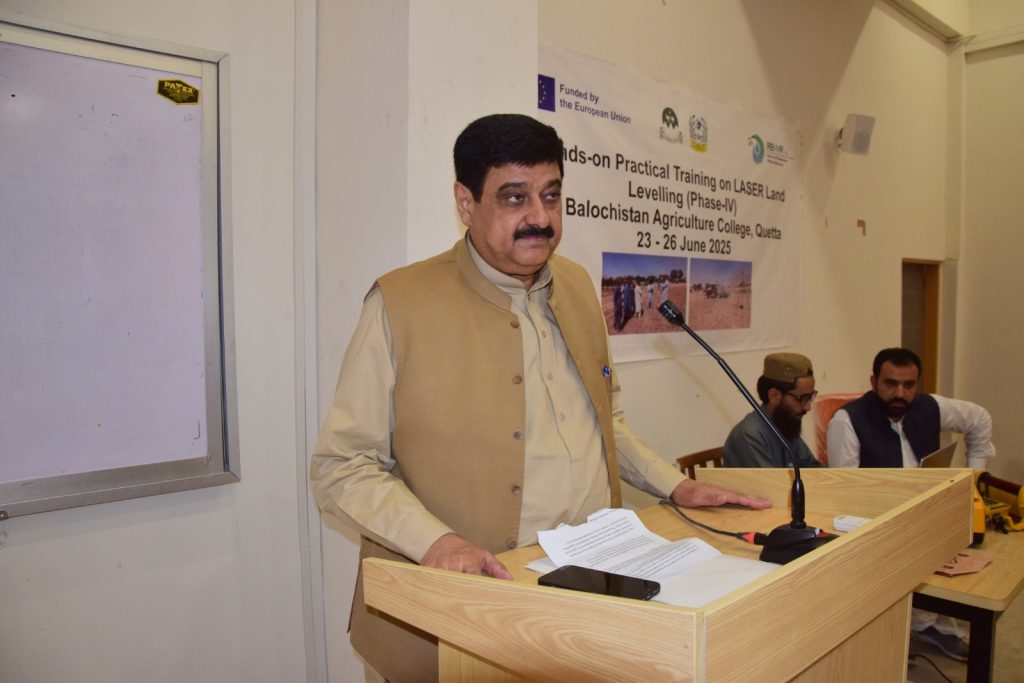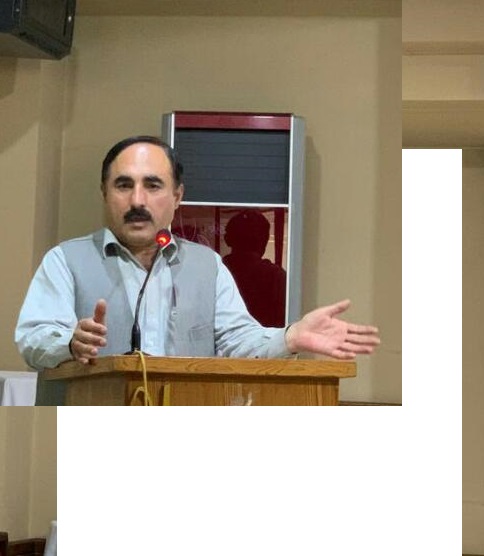

Close

Balochistan Agriculture College, Quetta
Balochistan Agriculture College, Quetta, was established in October, 1986 after realizing the immense need for professionals in the field of agriculture. Since inception, it has produced more than 1300 graduates in the various disciplines of Agriculture. The annual intake in the college has been kept at a base minimal level of 200 students to ensure quality of education and research on high grounds. The infra- structure of the college is well-established and enforced with well-equipped laboratories, up-to-date library and well-trained, qualified academic staff.






Agricultural economics is an applied field of economics concerned with the application of economic theory in optimizing the production and distribution of food and fiber products. Agricultural economics began as a branch of economics that specifically dealt with land usage.
Agricultural extension is the application of scientific research and new knowledge to agricultural practices through farmer education.
Agronomy is the science and technology of producing and using plants by agriculture for food, fuel, fiber, chemicals, recreation, or land conservation. Agronomy has come to include research of plant genetics, plant physiology, meteorology, and soil science.
Entomology is the scientific study of insects, a branch of zoology. In the past the term “insect” was less specific, and historically the definition of entomology would also include the study of animals in other arthropod groups, such as arachnids, myriapods, and crustaceans
Food technology is a branch of food science that deals with the production, preservation, quality control and research and development of the food products. Early scientific research into food technology concentrated on food preservation.
Horticulture is the branch of agriculture that deals with the art, science, technology, and business of plant cultivation. It includes the cultivation of fruits, vegetables, nuts, seeds, herbs, sprouts, mushrooms, algae, flowers, seaweeds and non-food crops such as grass and ornamental trees and plants.
Plant breeding is the science of changing the traits of plants in order to produce desired characteristics. It has been used to improve the quality of nutrition in products for humans and animals.
Plant pathology is the scientific study of diseases in plants caused by pathogens and environmental conditions. Organisms that cause infectious disease include fungi, oomycetes, bacteria, viruses, viroids, virus-like organisms, phytoplasmas, protozoa, nematodes and parasitic plants.
Soil science is the study of soil as a natural resource on the surface of the Earth including soil formation, classification and mapping; physical, chemical, biological, and fertility properties of soils; and these properties in relation to the use and management of soils.
Balochistan Agriculture College, Quetta is a public sector institution affiliated with the University of Balochistan, Quetta. Since 1987, it has been imparting professional education in the field of Agriculture. Applications are invited for admission to the B.Sc. (Hons.) Agriculture program for Spring Semester 2026, Session 2025–29. All agricultural disciplines offered at Balochistan Agriculture College are accredited by the National Agriculture Education Accreditation Council (NAEAC) of the Higher Education Commission (HEC), Islamabad.